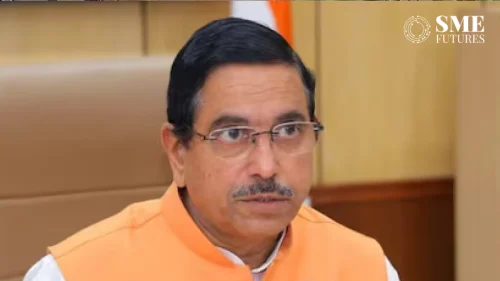The Union Cabinet on October 12 2022, approved the Multi-State Cooperative Societies (Amendment) Bill, 2022 to improve the ease of doing business, increase financial discipline and enable the raising of funds in the Multi-State Cooperative Societies.
According to sources, the Bill, which seeks to amend the Multi-State Cooperative Societies Act, of 2002, will improve governance, reform the electoral process, strengthen the monitoring mechanism, improve the composition of the Board, and also enhance transparency and accountability in the Multi-State Cooperative Societies.
The Bill will incorporate the provisions of the 97th Constitutional Amendment, said sources following the Cabinet meeting chaired by PM Modi. The move was taken to make the governance of multi-State Cooperative societies more democratic, transparent and accountable.
Provisions for setting up of Cooperative Election Authority, Cooperative Information Officer and Cooperative Ombudsman have also been proposed in the Bill. The Election Authority will ensure that elections are held in a fair, free and timely manner, which in turn will help reduce incidents of complaints and malpractices.
Also Read: IMF expects inflation in India to come down to 4% next year
Provision to debar electrical offenders for three years will bring in more electoral discipline. Cooperative Ombudsman will provide a mechanism for the redressal of member grievances in a structured fashion. The provision of a Cooperative Information Officer will enhance transparency by providing members with timely access to information.
To promote equity and facilitate inclusiveness, provisions relating to the representation of women and Scheduled Caste and Scheduled Tribe members on the board of multi-State co-operative societies have been included, noted the statement.
To promote professional management, it further said, provisions have been included for bringing in co-opted directors with experience in the field of banking, management, cooperative management and finance or having specialization in any field relating to the objects and activities undertaken by the such multi-State cooperative society.
Amendments have also been proposed to enhance ease of doing business by reducing the period of registration with a provision for the applicants to seek additional time of two months for rectification of mistakes, it said, adding, the amendment also provides for electronic submission and issuance of documents, thus providing for a comprehensive digital ecosystem for multi-State co-operative societies.
Also Read: Forthcoming budget to focus on growth: Sitharaman
Provision for issuance of non-voting shares would provide multi-State co-operative societies with a tool to raise requisite capital. Further, the newly proposed Rehabilitation, Reconstruction and Development Fund will help in revitalising sick multi-State co-operative societies.
In addition to these, the provision for stipulating prudential norms will bring in financial discipline. The amendments relating to the auditing mechanism will bring in more transparency and accountability.
The proposed amendments covering major areas of operation and management would go a long way in strengthening the co-operative movement in the multi-State co-operative sector in the country.
After the formation of the new Ministry of Cooperation in July 2021, extensive consultations were held with stakeholders and it was decided to amend the existing Act to bring it in line with Part IXB of the Constitution and to strengthen the cooperative movement in the country by bringing in provisions relating to electoral reforms, strengthening governance and transparency, reforming the composition, meetings and membership of board; enabling the raising of funds by co-operative sector, strengthening monitoring mechanism, enhancing the ease of doing business.
Also Read: ONDC is all set to decentralise e-commerce and make it seamless for SMEs
Today, India has more than 1,500 multi-State co-operative societies serving as an important tool to promote economic and social betterment of their members based on the principles of self-help and mutual aid.
The Multi-State Co-operative Societies Act, of 2002 was enacted to facilitate the democratic functioning and autonomous working of multi-State co-operative societies in line with the established co-operative principles. There is a felt need to amend the Act to bring it in line with the 97th Constitutional Amendment and strengthen the cooperative movement in the multi-State Cooperative societies sector.











